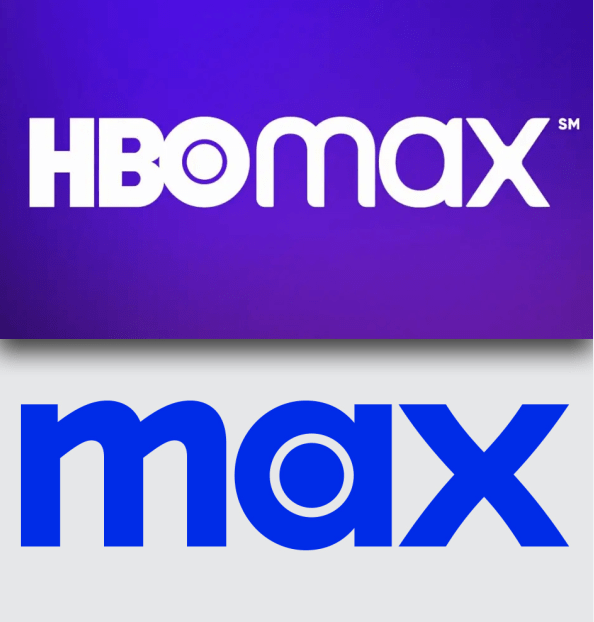In the grand tapestry of Greek mythology, few tales embody the spirit of futile persistence quite like that of Sisyphus. King Sisyphus of Corinth was renowned for his cunning and deceit, traits that eventually led to his fall from grace. Punished by the gods for his trickery, Sisyphus was condemned to an eternity of pointless toil in the underworld. His punishment was to roll a colossal boulder uphill, only for it to inevitably roll back down, erasing all progress. Each time, Sisyphus would commence his task anew, pushing against the insurmountable weight with grim resolve.
While some will see Sisyphus as a telltale for there being no greater meaning in life but what we give it, I interpret it as a metaphor for the individual's persistent struggle against the essential absurdity of life. And last week, we’ve seen something happen in the world of marketing nothing short of absurd.
I've often found myself puzzled by the labyrinthine brand architecture of HBO. With a bouquet of offerings such as HBO Max, HBO Go, HBO Now, and the like, one could argue that the HBO branding hierarchy had become somewhat of a puzzle in its own right. This confusion, however, has taken on a new dimension following the recent announcement of HBO’s decision to distance itself from its HBO Max service by rebranding it to "Max".

As of May 23, 2023 HBO Max has been rebranded to Max.
This decision is profound. HBO, a name that has become synonymous with quality content over the decades - which has produced blockbuster series like Game of Thrones, Succession, and Euphoria -, has detached itself from its 4-year-old offspring service. The newly monikered Max is now the designated hub for streaming all HBO shows (with the exception of HBO’s linear cable channels). Yet, as expected, this transition has raised more than a few eyebrows, including mine.
To clarify, it is not the mere fact of the rebrand that is bewildering, but rather, the value of the equity they seemingly abandoned. HBO is a brand that has been nurtured over more than four decades. It has become a highly credible name, almost a certificate of excellence for series and films. However, in one fell swoop, it appears that Warner Bros. Discovery, the umbrella organization, opted to flush this immense brand equity down the drain.
Brand building is no small feat. It involves a strategic amalgamation of time, consistency, talent, capital, and a good dose of serendipity. Companies will spend millions of dollars each year on campaigns to drive brand awareness, affinity and category relevance with no guarantees that it will work immediately. As the old saying goes: “sales overnight, brand over time”.
I’ll repeat it: “brand. over. time”.
Years ago performance marketing - a branch of marketing that focuses on paying for results for campaigns, like sales, leads, or clicks conducted through third-party channels such as direct mail providers, search engines, and social media sites - promised to kick brand marketing to the curb. Data-driven CFOs and CEOs demanded from their CMOs that they showed tangible proof of the returns on the millions of dollars spent on their marketing campaigns. Since brand marketing plays the long game, companies (particularly B2B companies) shifted large amounts of their budgets into short-term performance marketing campaigns.
But as our parents have taught us when we were young, patience is a virtue. Brands that for years had invested in brand marketing initiatives (think Nike, Apple, HBO…) were rewarded magnificently later on - oftentimes in orders of magnitudes higher than those that had not made similar investments.

As the old saying goes: “sales overnight, brand over time”.
So, here we are - HBO, a brand that built a formidable reputation based on “what’s not on it” (as opposed to Netflix’s approach to giving production deals to anyone under the sun), has simply left all that brand equity on the table with the rebranding of HBO Max.
Despite my concerns, I can't help but wonder if I'm missing a larger piece of the puzzle here. A rebrand of this magnitude must surely have some rationale underpinning it. Is there a secret strategy at play that we're yet to discover? If WBD can somehow embed Max into our cultural lexicon like HBO has, this will indeed become a rebrand for the ages. It may end up being a case study for university students around the world, scrutinizing its merits and shortcomings for years to come.
However, the Max name, bereft of any overt association with HBO, feels generic. A term like 'max' often acts as a differentiator, an amplifier - "HBO Max" communicated an enhanced, perhaps even superior, HBO experience. Stripped of its original context, Max lacks the implicit promise of the HBO brand, making it harder for consumers to form immediate perceptions about the service.
Successful brands often reinforce four fundamental qualities while building equity: a clear and relevant customer promise, trust built through delivery on that promise, driving the market via constant improvements, and a penchant for innovation beyond the familiar. These qualities typically germinate over time, solidifying the brand's position in consumers' minds.
That’s exactly what HBO had been doing for over four decades of brand building:
If it wasn’t going to be great, HBO wasn’t having it;
HBO consistently delivered blockbuster series that were the talk of the town overshadowing their competitors and building brand trust;
They pushed the industry forward with HBO Go and “transmedia” initiatives to its shows, further blurring the line between their stories and real life, and;
HBO zigged when others zagged by introducing the one-hour long drama format to a television environment in the 90s flooded with twenty-minute comedies.
In effect, HBO's decision to distance its brand from HBO Max represents a turning point. The HBO brand, until now, has been symbolic of a content studio known for quality rather than quantity, an antithesis to platforms like Netflix. By casting aside this invaluable reputation and venturing into the world of broader programming with Discovery’s background expertise, they’re attempting to protect the HBO property. While I see the reasoning behind it, I wonder if broader programming is the right move to begin with.
There's no denying that the HBO brand was, and still is, one of the most potent in the realm of entertainment. It carries an aura of prestige and exclusivity, standing as a beacon of quality in an industry otherwise flooded with content. The question now is whether Max can create its own distinctive identity without relying on the shadow of HBO. More importantly, will it carry forward the same ethos of delivering high-quality content that we have come to associate with HBO? Only time will tell.
In the world of branding, there are no guaranteed recipes for success. It's a terrain of unknowns where a seemingly ill-conceived move can sometimes yield surprisingly beneficial results. Regardless of the road ahead, this decision has sparked intriguing discussions on brand value, loyalty, and evolution. It has highlighted the nuanced dynamics of brand building and, for better or for worse, it might have just earned Warner Bros. Discovery its own chapter in marketing textbooks for years to come.
Either way, the boulder is back at the bottom of the hill. They better get pushing.
PPA
Pedro Porto Alegre is a seasoned marketing professional with in-depth experience building brand and communications strategies for top-tier B2C and B2B organizations across Canada. His repertoire extends from crafting and executing integrated multi-media brand marketing campaigns to the commercialization of performance-driven innovations for multimillion-dollar and nascent brands alike.

